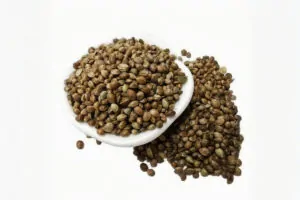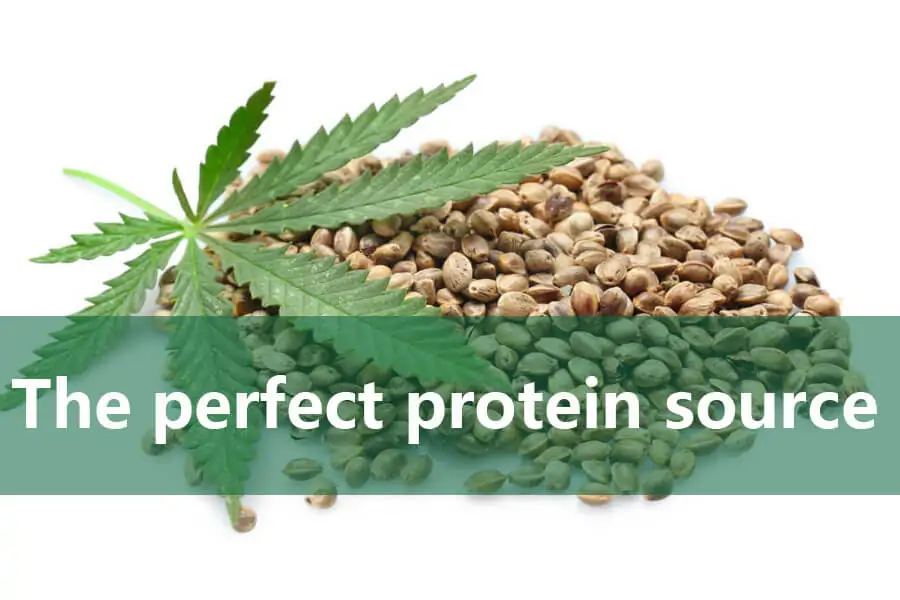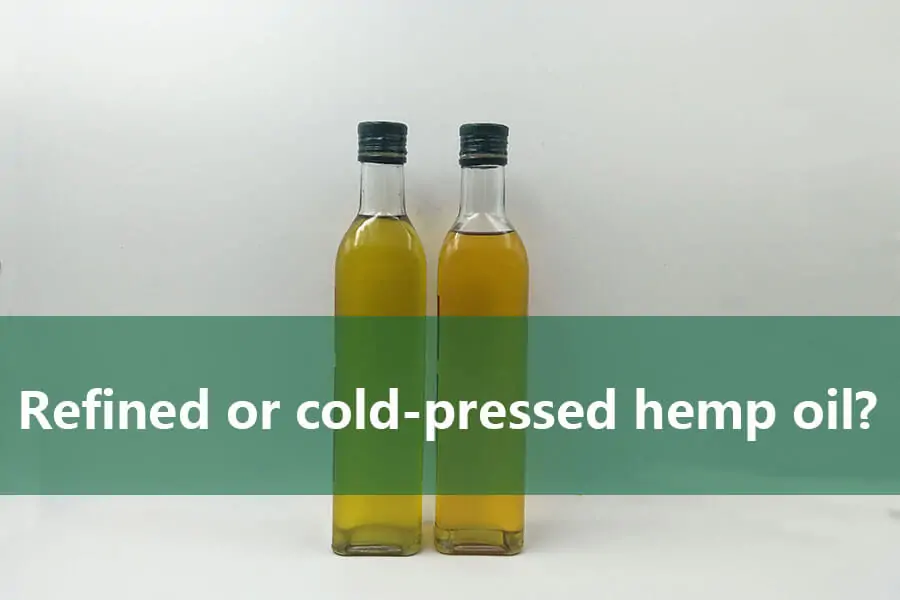Organic hemp seed oil is a type of oil extracted from the seeds of the hemp plant (Cannabis sativa L.). Hemp seeds are rich in protein, fiber, omega-3 and omega-6 fatty acids, and other nutrients. Hemp seed oil has been used for various purposes, such as cooking, skin care, and as a dietary supplement. However, like any other natural product, hemp seed oil may also have some side effects and interactions that you should be aware of before using it.
What is Hemp Seed Oil?
Hemp seed oil is made by cold-pressing hemp seeds. It has a mild, nutty flavor and a greenish color. It is different from CBD oil, which is extracted from the cannabis plant and contains psychoactive properties. Hemp seed oil does not contain any significant amount of THC or CBD, but it may contain trace amounts of other cannabinoids that can affect your body.
Benefits of Hemp Seed Oil
Hemp seed oil has many potential benefits for your health and well-being. Some of the benefits are:
- Heart health: Hemp seed oil contains omega-3 and omega-6 fatty acids that can lower your blood pressure, cholesterol, and inflammation. These fatty acids can also prevent or reduce the risk of cardiovascular diseases such as heart attack or stroke.
- Skin health: Hemp seed oil can moisturize your skin, reduce acne, and improve your skin elasticity. It can also protect your skin from sun damage, aging, and infections. Hemp seed oil can also be used to treat skin conditions such as eczema, psoriasis, or dermatitis.
- Brain health: Hemp seed oil can improve your brain function, memory, and mood. It can also protect your brain from oxidative stress, inflammation, and neurodegeneration. Hemp seed oil can also be used to treat neurological disorders such as Alzheimer’s disease, Parkinson’s disease, or epilepsy.
- Immune health: Hemp seed oil can boost your immune system and fight off infections. It can also modulate your immune response and prevent or reduce autoimmune diseases such as rheumatoid arthritis or multiple sclerosis.
- Hormonal health: Hemp seed oil can balance your hormones and regulate your menstrual cycle. It can also relieve symptoms of premenstrual syndrome (PMS) or menopause such as mood swings, cramps, or hot flashes.
Side Effects of Hemp Seed Oil
Despite its many benefits, hemp seed oil may also have some side effects that you should be aware of before using it. Some of the possible side effects are:
- Gastrointestinal distress: Some people may experience loose stools, diarrhea, bloating, and cramps in the abdominal area after consuming hemp seed oil. These symptoms are usually mild and temporary, and may be due to the high fat content or the fiber in the hemp seeds.
- Changes in appetite: Hemp seed oil may affect your appetite, either increasing or decreasing it. This may be due to the presence of cannabinoids such as cannabidiol (CBD) or tetrahydrocannabinol (THC) in the oil, which can interact with your endocannabinoid system and regulate your hunger and satiety signals.
- Drowsiness or fatigue: Hemp seed oil may cause drowsiness or fatigue in some people, especially if taken in high doses or combined with other sedative substances. This may be due to the relaxing and calming effects of CBD or other cannabinoids in the oil.
- Changes in liver enzymes: Hemp seed oil may affect your liver function by altering the levels of some liver enzymes. This may be more likely if you have a pre-existing liver condition or if you take other medications that are metabolized by the liver. You should monitor your liver function tests regularly if you use hemp seed oil.
Interactions of Hemp Seed Oil
Hemp seed oil may also interact with some medications or supplements that you are taking. Some of the possible interactions are:
- Blood thinners: Hemp seed oil may have anti-coagulant properties that can increase the risk of bleeding if you take blood thinners such as warfarin or aspirin. You should consult your doctor before using hemp seed oil if you are on any blood-thinning medication.
- Antidepressants: Hemp seed oil may have antidepressant effects that can enhance or interfere with the action of some antidepressants such as selective serotonin reuptake inhibitors (SSRIs) or serotonin-norepinephrine reuptake inhibitors (SNRIs). You should be careful when using hemp seed oil if you are on any antidepressant medication and watch for any changes in your mood or behavior.
- Anticonvulsants: Hemp seed oil may have anticonvulsant effects that can reduce the frequency and severity of seizures in some people with epilepsy. However, it may also interact with some anticonvulsant medications such as phenytoin or carbamazepine and affect their efficacy or dosage. You should consult your doctor before using hemp seed oil if you have epilepsy or take any anticonvulsant medication.
- Other cannabinoids: Hemp seed oil may contain trace amounts of THC or other cannabinoids that can interact with CBD or other cannabinoids that you are taking. This may result in additive or synergistic effects that can enhance or reduce the benefits or side effects of each cannabinoid. You should be aware of the cannabinoid profile of your hemp seed oil and adjust your dosage accordingly.
How to Use Hemp Seed Oil
Hemp seed oil can be used in various ways, depending on your preference and needs. Some of the common ways to use hemp seed oil are:
- Orally: You can take hemp seed oil by mouth as a dietary supplement. You can either swallow it directly or mix it with other foods or drinks. The recommended dosage of hemp seed oil is 1 to 2 tablespoons per day, but you can start with a lower dose and gradually increase it until you find the optimal amount for your needs.
- Topically: You can apply hemp seed oil directly to your skin as a moisturizer, cleanser, or treatment for various skin conditions. You can either use it alone or mix it with other oils or ingredients. You can also use hemp seed oil as a carrier oil for essential oils or other topical products.
- Inhalation: You can inhale hemp seed oil by using a vaporizer, diffuser, or inhaler. This can help you relax, relieve stress, and improve your mood. You can also add other aromatherapy oils or herbs to enhance the effects of hemp seed oil.
How to Store Hemp Seed Oil
Hemp seed oil is sensitive to light, heat, and air, which can degrade its quality and potency over time. Therefore, you should store hemp seed oil in a cool, dark, and dry place, away from direct sunlight and heat sources. You should also keep hemp seed oil in an airtight container to prevent oxidation and rancidity. You should check the expiration date of your hemp seed oil and discard it if it smells or tastes bad.
Conclusion
Organic hemp seed oil is a natural product that has many potential benefits for your health and well-being. However, it may also have some side effects and interactions that you should be aware of before using it. You should always consult your doctor before using hemp seed oil if you have any medical condition or take any medication or supplement. You should also start with a low dose and gradually increase it until you find the optimal amount for your needs. You should also monitor your response and stop using hemp seed oil if you experience any adverse reactions.
Related Products
Organic Hemp Seeds
Organic hemp seeds offer complete nutrition with optimal protein, fatty acids, and fiber content. Versatile…
Organic Hemp Seed Oil
Available in cold pressed hemp seed oil, refined hemp seed oil, hemp heart oil and…




